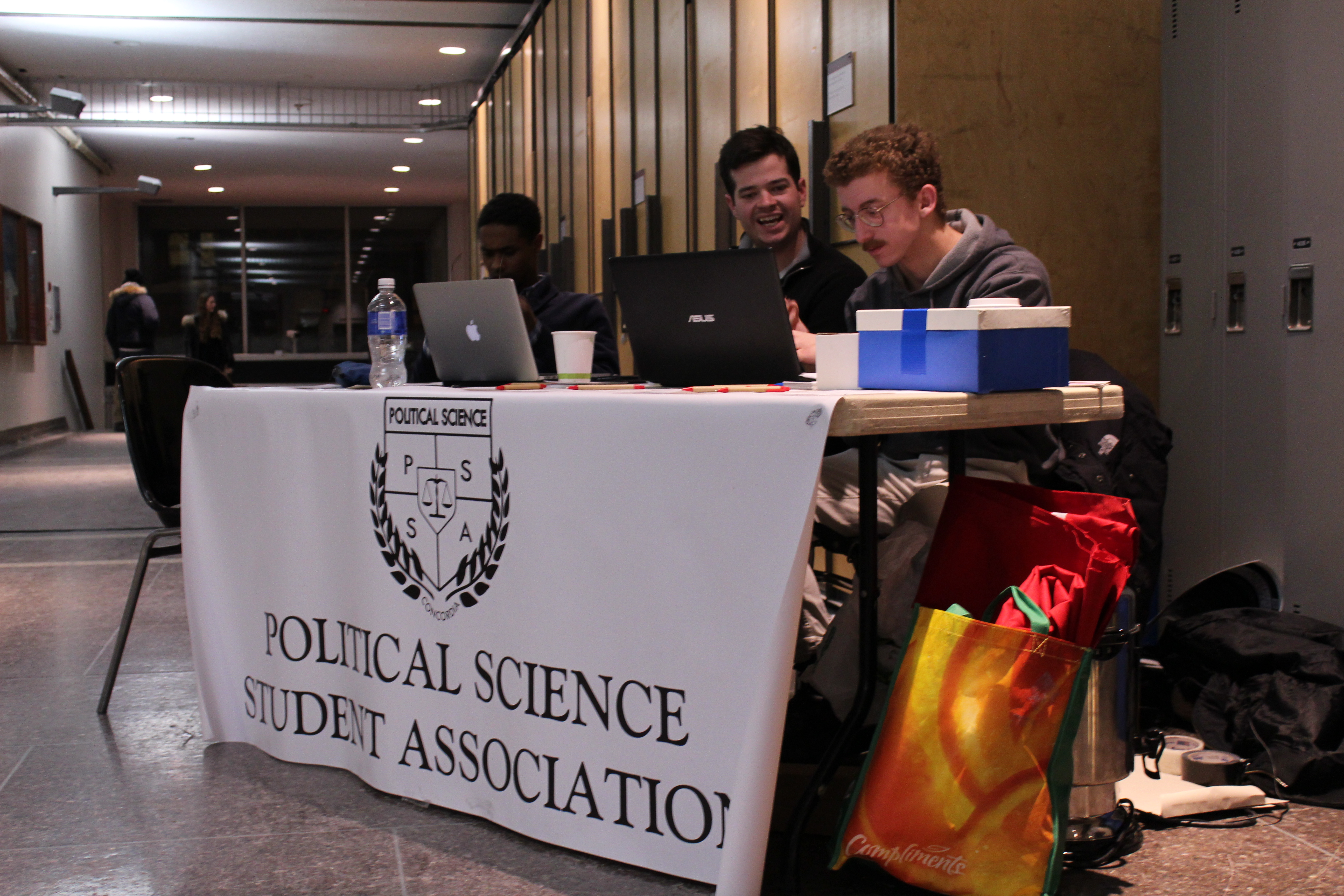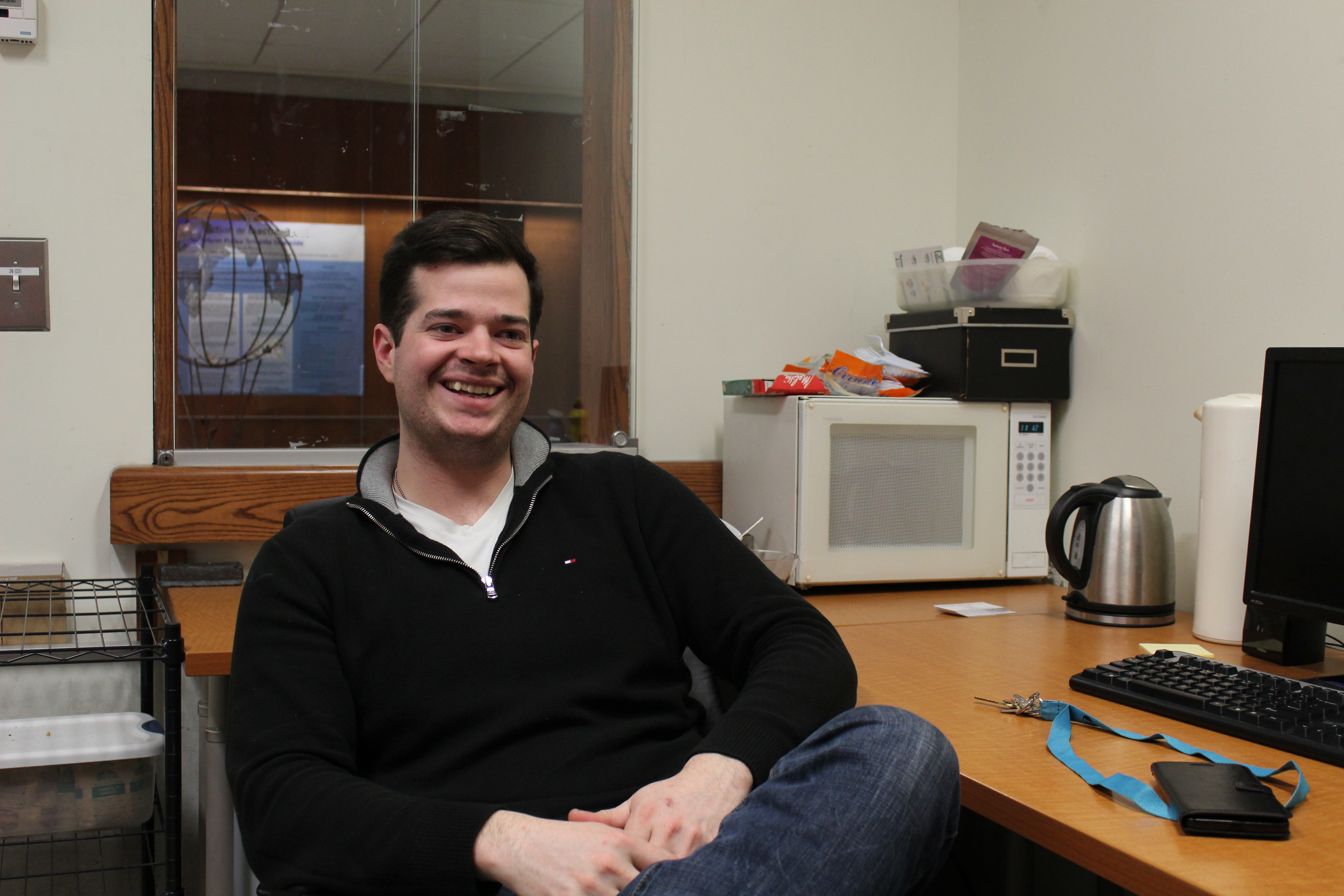Students to decide if they want to remain under ASFA
This week, the Political Science Students Association of Concordia (PSSA) is asking its student body to give it legal standing to represent its students.

A successful referendum would make the PSSA independent of the Arts and Science Federation of Associations (ASFA).
A “yes” vote would make the PSSA an official body recognized by the Quebec government. That would mean Concordia would be bound to provide the PSSA with an office, furniture and means to contact the political science student body. The incorporation process (required by the ministry) would allow the PSSA to have a bank account, and the accreditation process means that the PSSA could fund itself through fee levy, like the Concordia Student Union (CSU) and ASFA. It would also make the PSSA the legal representative of Concordia’s political science students, capable of legal action in court.
Jason Poirier Lavoie, the current PSSA president, is a major force who pushed for the referendum on accreditation. He said the PSSA in its current form is unofficial, and exists in a precarious grey zone of allowances and courtesies.
“We exist because ASFA permits us [to exist]. We’re ‘ASFA Lite,’” Poirier Lavoie explained. “We have this office because the department is nice enough to give it to us. We have this furniture because they donate it to us. I can’t contact my members because it’s a breach of privacy for the university … for money, we have to beg to ASFA, or spend my own money. So we’re very informal.”

However, the PSSA has several unique privileges, such as offering the association a vote on the Political Science department council and allowing students to interview candidates for positions in the department. “But these are all informal, these are all courtesies,” said Poirier Lavoie. He warned that any of these advantages could be taken away without explanation.
Poirier Lavoie admits that these changes may in and of themselves sound benign, but he alleges that these shifts would signal a change of power dynamics for the PSSA. “When you think of ASFA, and the way they treat [member associations] as disposable attachments, the way this department gives us privileges, but they’re optional … this would shift us on to better footing.”
It’s something former executives agree with. “Accreditation should happen because when I was in the PSSA … we were operationally disadvantaged,” said former PSSA VP of internal affairs Nikos Pidiktakis.
“I voted for the accreditation because I don’t see that many events that ASFA directly does for poli sci students, and the PSSA execs are people that we know and have access to,” said Alex Decarie, a political science student who voted in the referendum Monday. “The PSSA holds regular events throughout the year that involve both students and faculty which really helps students get to know each other and their professors outside of class which is pretty cool. So I voted yes because of all the hard work that the PSSA puts into their events and with what they’re promising to offer us once they get accredited.”
That isn’t to say that there are no disadvantages. Poirier Lavoie says that political science students will still need to pay the fee levy for ASFA, even after the PSSA’s accreditation—effectively paying the fee for two separate associations without the benefits, “since ASFA will simply take the money and reorient it somewhere else,” according to Poirier Lavoie.
But Poirier Lavoie said he plans on renegotiating this issue with ASFA, which he believes will have to undergo dramatic changes in light of its recent problems including a series of resignations and a major harassment scandal.
“The thing you’re seeing now, this thing we know as ‘ASFA’, is breathing its last breaths,” said Poirier Lavoie. “If ASFA is to continue going in the direction that it is we [the PSSA] have no choice but to leave.”



